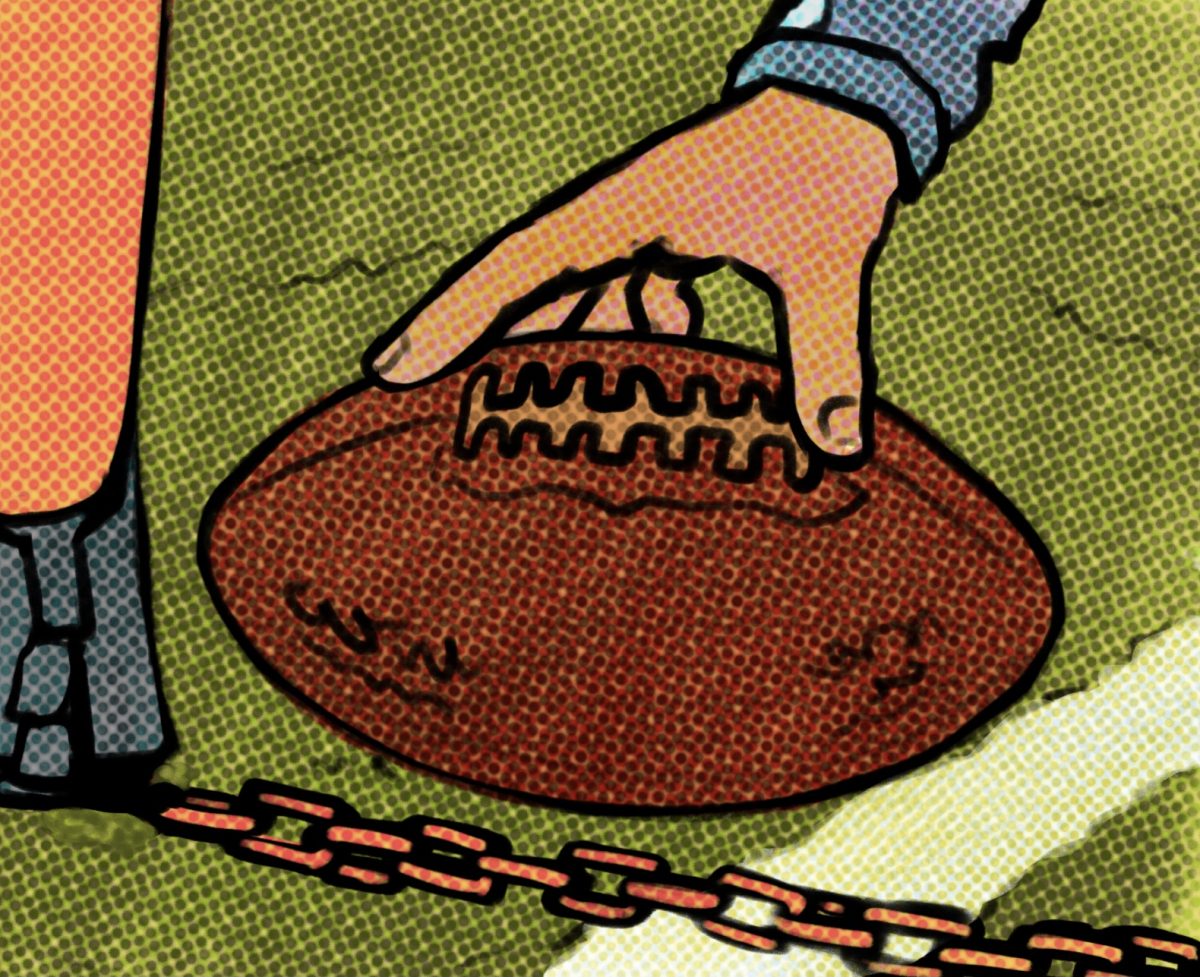The Barbie doll’s 1959 emergence into society left the world speechless. Quickly, she became everything a little girl wanted to be — everything that dads and moms would spend their paychecks on in hopes of appeasing their children. In the decades following Barbie’s release, creators at American toy company Mattel have been forced to adjust the doll’s appearance, begrudgingly changing cosmetic features to make the doll more inclusive and relatable for a wider market. Because Barbie’s debut perpetuated the “ideal” beauty standards of a perfectly sculpted figure with white skin and blond hair, the doll was never the role model it had the potential to become.
However, Barbie quickly rose to popularity with Mattel jumping at the opportunity to capitalize on their creation at every turn, leading to the addition of many new Barbie characters all enclosed in the magenta pink walls of Barbie’s Dream House. Subsequently, the doll became the basis for animated shows, ads, room decorations and now, as the doll nears the 65th anniversary of its invention, a movie by director Greta Gerwig. The film brought Barbie back into the limelight, reminding us of the iconic mogul that she once was – and remains.
The Barbie movie hit theaters on July 21, though available tickets were hard to come by. I had to search far and wide to get seats for my family. By the time I secured four tickets, the movie had been out for over three weeks. Regardless, none of the seats were in close proximity to each other.
Margot Robbie (Barbie) and Ryan Gosling (Ken) perfectly embodied their roles. The film generated roars of laughter as its satirical tone manifested in witty remarks and light-hearted banter.
The movie used the nostalgia tied to Barbie in an attempt to critically examine gender and cultural norms. However, with the musical numbers and the quippy one-liners, I feel the movie glosses over this point and misses the mark of recounting the issues Barbie dolls have caused.
The movie was no doubt a feminist effort. Unfortunately, it fails to delve into why Barbie perpetuates society’s views of the “perfect woman.” Instead, the movie resorts to fleeting moments of acknowledgement of these issues that get quickly concealed with a joke. It’s sad too, because I feel that the beginning of the movie, the first half hour in particular, was enthralling and captured the wistfulness of Barbie in a magical land that brought the inner child out of all ages. However, this theme was quickly overwhelmed with a multitude of others that were all trying to be addressed simultaneously.
Junior Helena Mack agrees and argues that the film might have progressed feminism in a way that doesn’t promote equality but rather female superiority.
“I thought it was a little stereotypically feminist and didn’t really reach the roots of the movement,” Mack said. “For me, feminism is equality of opportunity and equality of perception for women. This film strangely goes the other way with a matriarchal thing, asserting that women are better than men.”
Additionally, the movie unintentionally perpetuated stereotypes in the characters. Even with the diversity in race and body type, the Barbies’ nails were manicured, their hair blown-out and their full glam makeup stayed perfectly intact throughout the movie. In order to successfully promote inclusivity, the movie should have addressed that the Barbie beauty standards were not made to be achievable and in no way is Margot Robbie, or the other Barbies for that matter, able to represent normal people and their flaws. Additionally, the women came off as emotionally weak and were way too easily influenced by the introduction of the patriarchy. The scene where the Barbies were under the control of the Kens only to be turned back by America Ferrera’s character’s (Gloria) persuasive monologue on the double-standards women face sat uncomfortably with me. Throughout the whole movie these women were supposed to be strong, empowered figures that could run society like a sisterhood. The idea of the women quickly adhering to a society controlled by men stifled my hope for a world in which men and women are treated equally.
As touched on before, the movie had too many undeveloped ideas to really grasp the importance of them all. Major themes of the movie include acknowledging that the doll is the epitome of nostalgia for a lot of young women, the feminist themes that women are not viewed as equals to men, the issues that women face in a male-dominated society, the historical importance of Barbie, the confession that Barbie has bolstered unreachable body standards and more. If this seems overwhelming, especially for a 1-hour, 54-minute film, that’s because it is.
“I think it got a little carried away,” Mack said. “I liked Barbie… and while all of the [messages] of the movie weren’t lost on me, I felt it wasn’t produced in the best way and it just made it all very chaotic especially with the multiple themes including Barbie’s general desire to find a purpose and be real.”
Just to clarify, I’m not trying to hate on the movie. I believe it is a relevant topic that truly resonates with a lot of female watchers and clues in the male ones as well. Please don’t get me confused with the ignorant viewers who are saying the movie is “anti-men.” I am not a Ben Shapiro sympathizer and I don’t condone the idea of taking a flame to the dolls, which for those who don’t know is what he did to show his hatred for the movie. However, most people I talked to after the movie thought it was funny, a comedy. My mom said it was cute, cheesy but a good watch. This just made me wonder if the real meanings of the movie were lost on its audience.
With that in mind, I feel one has to look further than this movie to find the true reason why Barbie, as a toy, has had such a negative effect on the self-esteem of women. We have to take into account that Barbie was made almost 65 years ago, in a time where women had nowhere near the rights or positions they have today. As time has progressed, Mattel has attempted to paint Barbie as a “trailblazer” in the workforce to combat ideas that women don’t belong in certain professions. She was everything and anything she wanted to be. The girls who were playing with the doll at young ages were focused on this, not on the size of her waist. Barbie’s influence on society’s perception of women didn’t dawn on me until it flooded into multi-media outlets. It was then that I saw the unrealistic beauty features that Barbie projects. However, the doll herself can’t really be blamed for society’s perceptions of the ideal woman which she has embodied throughout time.
The movie inadvertently incorporates these ideas and left Mack feeling as such: “The whole idea of Barbie needing to be both internally and externally perfect seems … unintentionally conveyed and made the movie difficult to understand.”










